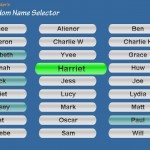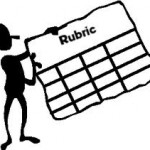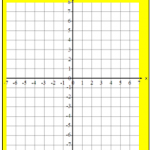Idea from: Nicola Jones (Head of Geography) Who is it for? Teachers of pupils in year 10 and 11 primarily but it could be used in years 9 and 12 where longer essays and explanations are being written. Outline of idea: I wanted to develop exam techniques in year 11 revision sessions that were different, …
Feb
22
Feb
22
“Well done for raising your hand!”
Who is it for? Useful at any level and in any context for encouraging and enlivening discussion during plenaries. Outline of the idea: I use this technique every time I need to enliven a plenary. I pick a student, “Michael”, who I know from previous lessons is reasonably secure on the topic in hand but …
Feb
10
Dare to be different
Who is it for? Teachers who are prepared to take risks with their classroom configuration and seating plans. Outline of the idea. Dare to be different and remove ‘straight row’ teaching! Dare to be different and seat your students in a different place each lesson! Dare to be different and provide the students with that …
Feb
08
"Easy" Assessment
Who it is for: Anyone looking to boost some confidence in written assessment tasks. Outline of the idea: I stumbled across this completely by accident when I left a class with a cover teacher to do an end of unit test. We use like this one to make marking more simple and highlight “things you …
Feb
01
The Random Name Selector: A way to make everyone pay attention
Who is it for? Anyone looking for a way to ensure that everyone contributes answers (without having to pick on people yourself). It works at all key stages. Outline of the idea: Some time ago I stumbled across this when looking for an easy way of picking people to answer questions or contribute ideas to …
Feb
01
Sticky Assessment
Thanks to Becky Gale! Who is it for? An idea for teachers that are marking or assessing to specific criteria, particularly if students often make the same mistakes. Outline of the idea I produced sticker sheets containing key information on the assessment criteria or the contents that students should have included in their work. I …
Jan
25
Contribution Cards
This comes from Katie Slusar and Pippa Boyns. Who is it for? KS3 groups or anywhere you want to encourage (or discourage!) contributions. Outline of idea Version One – targeting a quiet pupil Give pupil anywhere between one and five contribution cards. These should be small pieces of paper or card, could have a C …
Jan
25
Lesson summary "Russian Roulette"
Thanks to Peter Law! Who is it for? Anyone looking for a good way to get pupils to take part in a quick quiz at the end of the lesson to check their understanding of work covered in class (or earlier on in the scheme of work). Outline of the idea At the end of …
Jan
19
Revisiting mini whiteboards – Mark Dawes
Who is it for? Any teacher of any subject at any level, regardless whether they like using mini whiteboards or not. The problem Lots of people rave about using mini-whiteboards in lessons. I have used them in the past and it has been ‘OK’, but I hadn’t really felt they were as wonderful as other …
Jan
17
Trash and Treasure: Teaching students to identify key points from a text
Thanks to Zach Beamish-Cook for this! Who is it for? Anyone trying to help students to develop their skills in reading texts and identifying their key points. Mainly aimed at KS4/5. Outline of the idea A common problem in developing students' skills in reading texts is that they find it difficult to process a whole …









